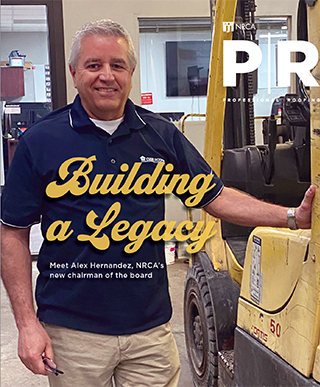Everyone, it seems, makes New Year resolutions that involve losing weight, exercising more and/or spending more time with family. The resolutions sometimes are unattainable for a variety of reasons and often the efforts to meet the resolutions are short-lived.
But there is a resolution you can make that is easy and will pay you back tenfold in benefits: continuing education.
This month, John Schehl, executive director of Roof Integrated Solar Energy,™ and Tom Shanahan, NRCA's vice president of enterprise risk management, discuss how continuing education is beneficial not only to your workforce but also to you and your company.
"The benefit of executive education is it allows business leaders to focus on identifying and setting specific goals, encourages self-awareness and leadership development, provides a platform to facilitate networking and exchange among peers, and instigates for many a frame of reference change. Executive education remains one of the key means to achieve transformative change," says Bettina Buechel, professor for the International Institute for Management Development.
And employees who participate in educational programs return to work energized and full of ideas that can help your business operate more efficiently.
After attending an NRCA educational program, Chris Sprick, superintendent and project manager for Sprick Roofing Co. Inc., Corvallis, Ore., said: "I've been able to share my thoughts and concerns and learn from others who are not in direct competition with our company, and though we all have varying degrees of experience, I know we all benefit and will leave better than we came."
If you choose to make continuing education a resolution, keeping it will be relatively easy. NRCA offers a variety of affordable programs—online and in person—for entry-level workers through roofing company executives and owners. To learn more, go to www.nrca.net/Education.
Ambika Puniani Bailey is editor of Professional Roofing and NRCA's vice president of communications and production.



